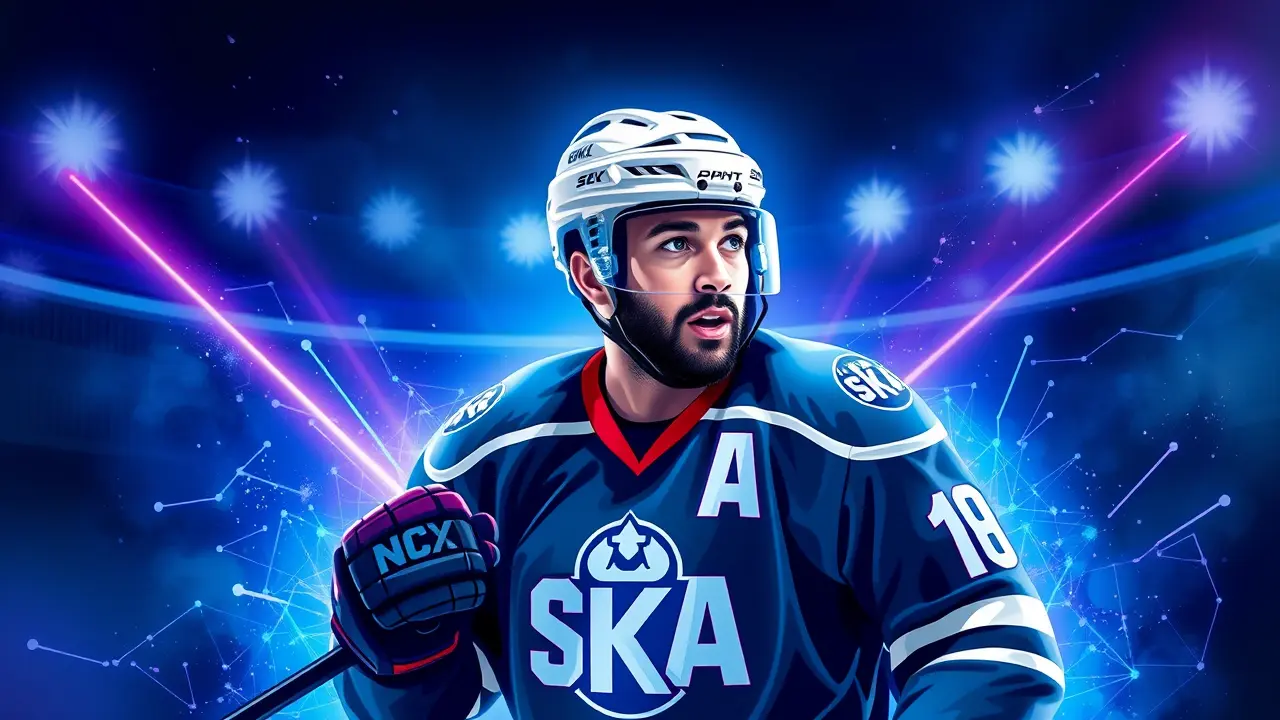Larionov on Grimaldi's Six Games Without Points
The saga of Rocco Grimaldi at SKA has become one of the most perplexing narratives of the KHL season, a high-stakes drama where a hefty contract meets a stark performance drought head-on. When the 32-year-old American forward joined the storied Saint Petersburg club before the start of the FONBET KHL season, expectations were sky-high; this was a player with proven offensive capabilities, a potential game-changer brought in to elevate an already formidable roster.Yet, the cold, hard statistics tell a story of unfulfilled promise: a mere 6 points (3 goals, 3 assists) scattered across 13 appearances, and now, the most damning statistic of all—a six-game stretch completely barren of any point production. This isn't just a minor slump; it's a full-blown crisis for a player designated as the team's top earner, a situation that forces a deep, analytical look into the mechanics of player adaptation, the weight of expectation, and the intangible question of desire that Head Coach Igor Larionov so pointedly raised after the painful 2:3 shootout loss to Neftekhimik.Larionov, the legendary 'Professor' of hockey, has never been one for blunt public criticism, but his post-game comments were a masterclass in measured frustration, a signal that the organization's patience is wearing thin. He outlined the exhaustive checklist the coaching staff has already run through: ample ice time, a carousel of different linemates in search of chemistry, prime power-play opportunities—the entire toolkit designed to jumpstart a skilled player's engine.For a month and a half, they've thrown every possible solution at the problem, yet the adaptation process, as Larionov candidly admitted, has 'dragged on tremendously,' becoming a source of tension for all involved. It’s a scenario that invites comparison to high-profile transfers in global football that failed to pan out, where a star player arrives with fanfare only to become a peripheral figure, their talent seemingly locked away.Larionov’s poignant remark, 'When an experienced player steps on the ice, the coach isn't next to him,' is a powerful invocation of personal responsibility, a reminder that the player ultimately bears the weight of the SKA emblem on his chest and the hopes of a passionate city. This shifts the entire conversation from mere tactics and systems to the more nebulous, yet crucial, realms of psychology and motivation.Is Grimaldi struggling with the immense pressure of his salary and the legendary status of the club? Is there an unspoken cultural or stylistic disconnect with the more structured, physical KHL game compared to the North American leagues he's accustomed to? Larionov’s transition 'into the plane of whether the player himself wants this' is the most telling part of the entire episode; it’s a public challenge, a call to arms that questions the very fire in the belly of his high-priced asset. The consequences of this prolonged drought are multifaceted.For SKA, a club with championship-or-bust ambitions, it represents a significant misallocation of resources that could hamper their roster flexibility and competitive edge. For Grimaldi, it’s a critical juncture in his career—a failure to adapt in such a high-profile environment could severely impact his future prospects both in the KHL and internationally.The broader context here is the high-risk, high-reward nature of international player signings, a gamble that can define a season. As the story unfolds, all eyes will be on whether Grimaldi can channel the spirit of hockey legends who overcame similar slumps through sheer force of will, or if this becomes a cautionary tale about the complex variables beyond pure skill that determine success in the world's top hockey leagues.
Latest News
The charts are whispering what the true believers have felt in their bones for weeks—Dogecoin is carving out a bottom.
17 hours ago5 comments
The Institute for Fiscal Studies has thrown a stark warning onto Rachel Reeves's desk, urging the Chancellor to confront a potential £22 billion shortfall in
17 hours ago3 comments
Alright, let's break down this absolute heater of a performance from the Chicago Blackhawks, because if you missed this one, you missed a party.
18 hours ago5 comments
The ice was hot last night in the NHL, folks, serving up a slate of games that felt less like a regular season Tuesday and more like a playoff preview with a
18 hours ago3 comments
The XRP chart is painting a tantalizing picture for those with the stomach to withstand the relentless pressure from crypto's leviathans.
18 hours ago4 comments
It’s in the small shifts, the quiet recalibrations of a Thursday morning, where the most meaningful change often takes root.
18 hours ago4 comments
In a move that sent ripples of quiet confidence through the crypto ecosystem, blockchain intelligence firms tracked a monumental treasury allocation from
18 hours ago4 comments
In a move that would have drawn a nod of approval from historical figures like Churchill, who understood the delicate balance of power within democratic
18 hours ago2 comments
MA
Maya Petrova123k7 hours ago
idk maybe he just needs more time to adjust tbh this stuff can't be rushed
0
MA
Mark Reynolds123k9 hours ago
this feels so familiar, reminds me of when we brought in that big name forward a few years back and the exact same thing happened. sometimes the desire just isnt there no matter how much you pay them
0
JA
Jamie Lawson123k17 hours ago
man this is tough to watch, you just wanna see him succeed taht much potential just sitting there
0
JA
Jamie Wilson123k20 hours ago
tbh that contract is looking rough rn idk what they were thinking
0
JA
Jamie Wilson123k1 day ago
ok but when the coach is basically like 'do you even wanna be here' that's baaad smh what a rough start
0
